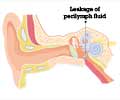Loss of hearing in the elderly has been blamed on defects in a specific gene according to studies by Dutch researchers.
Loss of hearing in the elderly has been blamed on defects in a specific gene according to studies by Dutch researchers.
It has been estimated that about 37% of Britons from ages 61 to 70 and 60% of those from ages 71 to 80 about 6.5m people are said to have age-related hearing loss.The Human Mutation study that was conducted on 1,200 people revealed subtle changes in the gene, KCNQ4 more frequent among those with age-related hearing problems.
According to the Royal National Institute for Deaf People, which funded the work, the study offered "real hope for treatments."
Dr Ralph Holme, Royal National Institute for Deaf People Scientists attribute age-related hearing loss to a combination of both environmental and genetic causes with the most common environmental factor is noise exposure.
Elderly people are often subject to feelings of isolation because hearing loss makes it difficult for elderly people to communicate with friends and family, and can lead to them feeling increasingly isolated.
At present there is no way that those at risk can be identified nor can the onset of hearing loss be prevented. In people with normal hearing, KCNQ4 is expressed in the hair cells of the cochlea to help in the recycling of potassium that is needed to trigger a nerve signal to be sent to the brain transmitting it back into inner ear fluid.
Advertisement
The University of Antwerp team undertook the study of over 1,200 people aged between 40 and 80 to see if more minor changes in KCNQ4 could play a part in age-related hearing loss. They tested people's hearing and then examined their DNA.
Dr Ralph Holme, the RNID's Biomedical Research Manager, said: "Many people consider hearing loss as an inevitable part of ageing, rather than a potentially preventable condition.
"This research provides another important piece of the jigsaw in highlighting a gene associated with age-related hearing loss.
"At the moment, there is nothing we can do. People can wear a hearing aid, but that doesn't prevent their hearing deteriorating.
"This offers real hope that treatments will be found and we are optimistic that in the future people will no longer face the prospect of losing their hearing as they age."











